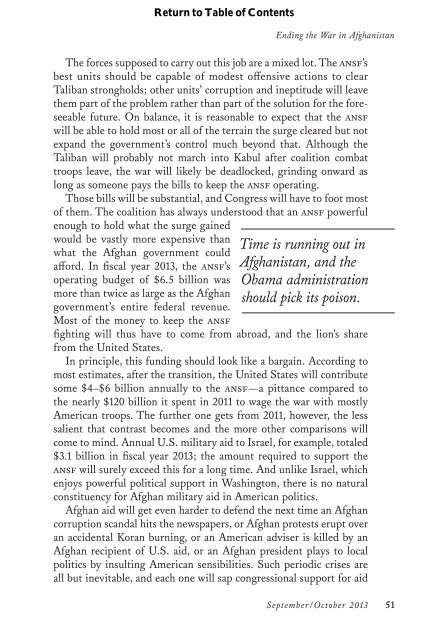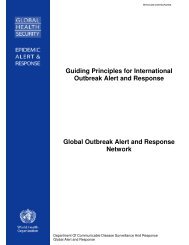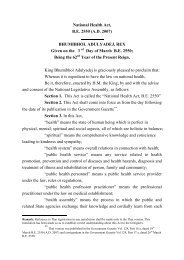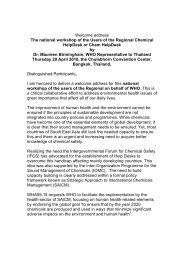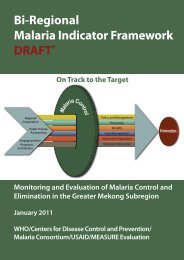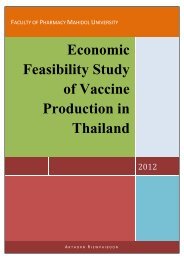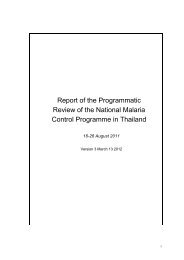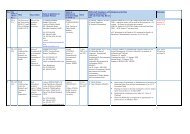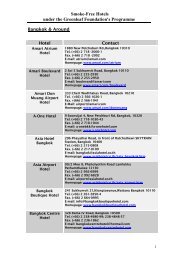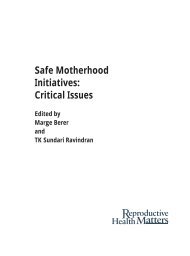Who Is Khamenei? - WHO Thailand Repository
Who Is Khamenei? - WHO Thailand Repository
Who Is Khamenei? - WHO Thailand Repository
Create successful ePaper yourself
Turn your PDF publications into a flip-book with our unique Google optimized e-Paper software.
Return to Table of Contents<br />
Ending the War in Afghanistan<br />
The forces supposed to carry out this job are a mixed lot. The ansf’s<br />
best units should be capable of modest offensive actions to clear<br />
Taliban strongholds; other units’ corruption and ineptitude will leave<br />
them part of the problem rather than part of the solution for the foreseeable<br />
future. On balance, it is reasonable to expect that the ansf<br />
will be able to hold most or all of the terrain the surge cleared but not<br />
expand the government’s control much beyond that. Although the<br />
Taliban will probably not march into Kabul after coalition combat<br />
troops leave, the war will likely be deadlocked, grinding onward as<br />
long as someone pays the bills to keep the ansf operating.<br />
Those bills will be substantial, and Congress will have to foot most<br />
of them. The coalition has always understood that an ansf powerful<br />
enough to hold what the surge gained<br />
would be vastly more expensive than<br />
what the Afghan government could<br />
afford. In fiscal year 2013, the ansf’s<br />
operating budget of $6.5 billion was<br />
more than twice as large as the Afghan<br />
government’s entire federal revenue.<br />
Most of the money to keep the ansf<br />
Time is running out in<br />
Afghanistan, and the<br />
Obama administration<br />
should pick its poison.<br />
fighting will thus have to come from abroad, and the lion’s share<br />
from the United States.<br />
In principle, this funding should look like a bargain. According to<br />
most estimates, after the transition, the United States will contribute<br />
some $4–$6 billion annually to the ansf—a pittance compared to<br />
the nearly $120 billion it spent in 2011 to wage the war with mostly<br />
American troops. The further one gets from 2011, however, the less<br />
salient that contrast becomes and the more other comparisons will<br />
come to mind. Annual U.S. military aid to <strong>Is</strong>rael, for example, totaled<br />
$3.1 billion in fiscal year 2013; the amount required to support the<br />
ansf will surely exceed this for a long time. And unlike <strong>Is</strong>rael, which<br />
enjoys powerful political support in Washington, there is no natural<br />
constituency for Afghan military aid in American politics.<br />
Afghan aid will get even harder to defend the next time an Afghan<br />
corruption scandal hits the newspapers, or Afghan protests erupt over<br />
an accidental Koran burning, or an American adviser is killed by an<br />
Afghan recipient of U.S. aid, or an Afghan president plays to local<br />
politics by insulting American sensibilities. Such periodic crises are<br />
all but inevitable, and each one will sap congressional support for aid<br />
September/October 2013 51


